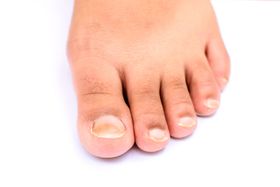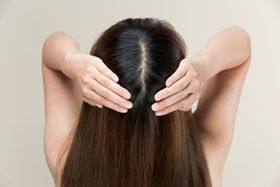Does Vitamin A Cause Hair Loss?
Vitamin A is an essential nutrient, but too much can have adverse effects. Learn about the potential for vitamin A to cause hair loss here.
Published July 30, 2022.
The human body needs multiple micronutrients for good health. Among the many vitamins and minerals that benefit hair growth, vitamin A has a vital role to play. Vitamin A is required for eye health, adequate cell growth and development, healthy hair, and enhanced immunity.
But just as vitamin A is essential, an excess of it can have adverse effects. Read on to learn more.
How Does Vitamin A Cause Hair Loss?
The human body uses two different sources of Vitamin A: preformed vitamin A and provitamin A:
- Preformed vitamin A, commonly referred to as retinol, is available in animal-based products such as dairy, organ meats, eggs, etc.
- Provitamin A, otherwise known as carotenoids, is present in fruits and vegetables (1).
Now, research indicates that retinol is well known to help stimulate the hair follicles for better growth and maintenance. Besides, it aids in the production and regulation of sebum, the wax-like substance that hydrates the hair and keeps it healthy (2).
However, prolonged use of vitamin A supplements can result in an excess of retinol in the body. This can catapult the hair growth phase into overdrive, causing it to end quickly and result in faster hair shedding and visible hair loss.
Seek Medical Attention to Control Vitamin A Intake
To sum up, taking excess vitamin A, especially in the form of supplements, can trigger hair loss. Your practitioner can stop supplements and restrict the consumption of carotenoid-rich foods to alleviate hair fall. A balanced diet with an increased focus on fruits and vegetables can deliver all the required vitamins and minerals for the body. Specific intake of other nutrients such as vitamin C, certain minerals, and biotin and collagen supplementation may prove useful in preventing hair loss and stimulating hair growth in individuals.
Related Articles

Marie-Claire de Villiers
Circulation and Heart Health—Using Vitamins to Improve Them
Related Posts
Deseré Davis
L-Cysteine Dosage for Hair Loss
Deseré Davis






